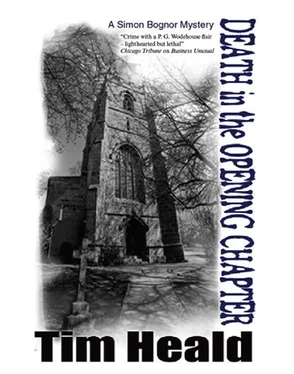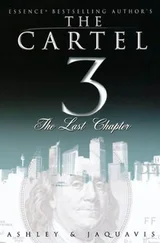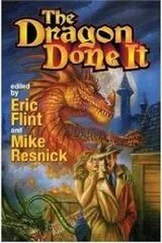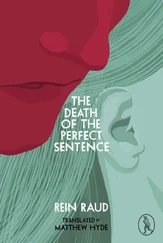Tim Heald - Death in the opening chapter
Здесь есть возможность читать онлайн «Tim Heald - Death in the opening chapter» весь текст электронной книги совершенно бесплатно (целиком полную версию без сокращений). В некоторых случаях можно слушать аудио, скачать через торрент в формате fb2 и присутствует краткое содержание. Жанр: Криминальный детектив, на английском языке. Описание произведения, (предисловие) а так же отзывы посетителей доступны на портале библиотеки ЛибКат.
- Название:Death in the opening chapter
- Автор:
- Жанр:
- Год:неизвестен
- ISBN:нет данных
- Рейтинг книги:5 / 5. Голосов: 1
-
Избранное:Добавить в избранное
- Отзывы:
-
Ваша оценка:
- 100
- 1
- 2
- 3
- 4
- 5
Death in the opening chapter: краткое содержание, описание и аннотация
Предлагаем к чтению аннотацию, описание, краткое содержание или предисловие (зависит от того, что написал сам автор книги «Death in the opening chapter»). Если вы не нашли необходимую информацию о книге — напишите в комментариях, мы постараемся отыскать её.
Death in the opening chapter — читать онлайн бесплатно полную книгу (весь текст) целиком
Ниже представлен текст книги, разбитый по страницам. Система сохранения места последней прочитанной страницы, позволяет с удобством читать онлайн бесплатно книгу «Death in the opening chapter», без необходимости каждый раз заново искать на чём Вы остановились. Поставьте закладку, и сможете в любой момент перейти на страницу, на которой закончили чтение.
Интервал:
Закладка:
‘You… you… amateur,’ said the pathologist, making the word sound as insulting and pejorative as he could. It would only have been worse if he had inserted the word Mexican as a qualifying adjective.
‘Well, on that note,’ said Bognor, ‘it only remains for me to take formal delivery of your report, to take official cognizance of what you say, and to assure you that your professional competence will be noted in the usual and correct manner. I may say, in passing, that nothing you have said or written is of the slightest use or relevance to my enquiries. Nevertheless, I acknowledge, that for all sorts of reasons, I am required to listen to what you say and to read your findings. This I have done, this I shall do, but I have more important things to do, and so, without more ado, I will say, again, thank you very much, leave you to your own devices and see myself out.’
Which he did.
He felt he had won the battle, but he was very much afraid he had lost the war.
EIGHTEEN
Martin Allgood, the once trendy, once sexy, once promising writer-in-residence, was Bognor’s next interviewee. He reminded Bognor of a footballer who had once been on the books of Arsenal or Manchester United, but had never entirely lived up to his transfer fee, and was now eking out his days playing for someone like Scunthorpe United or Crewe Alexandra, which, in many respects, the Fludd Literary Festival resembled. Inwardly, Sir Simon allowed himself a quiet chuckle at the notion of the Fludd Festival as the bookish equivalent of Crewe Alexandra. He corrected himself in mid-laugh, however – more like Plymouth Argyle, with Allgood in the role of Paul Mariner. That, though, was inaccurate and unfair to many of those concerned. Mariner was the manager, after all, and Bognor had once seen him in his pomp, as the striker of a high-flying Ipswich Town. Martin Allgood had never had a pomp – only promise. Still, he reminded Bognor of a footballer who had never quite made the grade. Not unlike the brigadier. Once upon a time, the brigadier had kept a field marshal’s swagger stick hidden promisingly in his knapsack. However, he had never had occasion to use it once he had been passed over as a mere brigadier. It was a bit the same with Allgood. No Nobel Prizes for him; nor even an evening with Candia McWilliam and Colin Thubron at the Royal Society of Literature or PEN. Martin Allgood was a bit of an also-ran, which was why, let’s face it, he was the Writer-in-Residence at the Fludd Festival of Literature and the Arts.
It didn’t seem to have dented his self-confidence, however. Better a big fish in a small pond, than no sort of fish at all. And his publicist may have been ignorant and stupid, but her breasts were pert and her cheekbones high, and she was probably very good in bed. Good enough for Martin Allgood, anyway, and she was all his, at least for the duration of the festival. She came with the board, the lodging and the billing, all of which were of a tolerably high order, even if the Fludd Festival wasn’t in the Premiership, even if the eponymous Flanagan had been a bit of a fraud, even if Allgood wasn’t even, truth be told, good enough to be superannuated. As he had said at dinner: ‘Beats work.’
He didn’t like the clergy any more than the brigadier, but he didn’t call them ‘sky pilots’, referring to them instead, quaintly, as ‘God botherers’. This signified his background of minor public school (‘Kimbolton, actually’), decent but unfashionable red-brick university (Hull) and a moderate chip on the shoulder. Incidentally, he claimed to have been a protege of Philip Larkin at Hull, and there seemed to be no one willing or able to contradict him, least of all Larkin, who was dead.
So, he didn’t care much for ‘God botherers’, though you could take them or leave them, even though he was inclined to leave them, and, no, he hadn’t known the late reverend, and he was, natch, sorry, the old stiff had snuffed it, but there you go, one of those things he supposed, and it wasn’t, after all, quite as bad for God botherers who believed in a life after death, unlike most people, and the Reverend Sebastian could at least bother God in person, tweak his long white beard, make fun of the long white socks he stuffed into his Clarks’ sandals and the aerated white bread with which he made his Marmite sandwiches. Heaven was, he was reliably informed by those who knew, full of long white beards, Clarks’ sandals and Marmite sandwiches. A bit like an old British Rail waiting room in a station where you changed on to a picturesque railway line destined for hiking country. ‘Carlisle, eh… all change for Settle. Cool, eh?’
The publicist’s name was Tracey, he thought. Could be Kelley. Or Britney. It ended in ‘ey’. He was pretty certain about that. More hairdresser than publisher, he agreed, even in the publicity department, though nowadays you couldn’t really tell the difference, and she was good in bed, which was where they had been yesterday between five and seven, in the four-poster in Azalea, with a bottle of bubbly, and, cool, eh?, and he supposed we only had Tracey or Kelley or Britney’s word for it, which wasn’t a lot to go on, but it was all he had, so there it was. Unless you can count room service, but they had brought up the champagne nearer four than five, which he remembered because it was well before the final football results on TV, and Stoke did really well, he had always supported them since he was at school. Cool. He used the word a fair bit, which dated him more than a bit, and was the day before yesterday’s word, just as he was the day before yesterday’s writer, if he had a period, but if you really wanted to know the best was yet to come, and he was working on something right now, which was going to be well, er, well, maybe he was going to say ‘cool’, but that was a word he’d been caught out for using at least once before, and it wouldn’t happen again, if he could help it, know what I mean?
Talked a lot, Martin Allgood.
‘So, you’d never met the vicar?’ asked Bognor, during one of the infrequent lulls in the monologue.
Allgood couldn’t say he had, though he’d clapped eyes on him a couple of times out and about, seeing as he, Allgood, had already been in Mallborne a day or two, organizing workshops in the school, and for the local writers’ group who met every Thursday evening and had been reading Rubbish as their set text. Rubbish was the book which Monica had asked about, and which had confirmed Allgood’s promise and secured him his place among the twenty most promising British writers of his generation. It had appeared quite a long time ago.
‘I’m afraid I haven’t read Rubbish,’ admitted Bognor.
‘Me neither,’ said Allgood. ‘Nor what’s her face, though she isn’t exactly into books, really. The ladies from the writers’ group had read it, though. All of them. Seemed to like it, too. Asked all sorts of intelligent questions. But they seemed a bit disappointed when I told them I didn’t know what the most important six rules of successful best-seller writing were. They had Jeffrey Archer down a month or so ago, and he reeled them straight off pat, then repeated them word for word, so they could take notes.’
For a moment, Allgood looked almost wistful at the thought of Jeffrey Archer’s six rules of successful best-seller writing, about which he had known so distressingly little. Then he brightened.
‘Do you reckon he topped himself, or got someone else to do the dirty deed? Or was it a hostile third party?’ he asked, and sat back, expecting some sort of answer.
‘The convention is,’ Bognor said stiffly, ‘that I ask the questions and you answer them. That’s the way it is.’
He was painfully aware that he was sounding pompous, so tried lightening the mood. ‘That’s what the book says,’ he said. ‘It’s a bit like the Jeffrey Archer rules of best-seller writing. If you play according to the rules, you do as the rules say.’ He lowered his voice. ‘I’m afraid, though,’ he conceded, ‘that I’m not awfully clever when it comes to rules. I can never remember what they’re supposed to be, and when I do remember, I tend to pay no attention.’
Читать дальшеИнтервал:
Закладка:
Похожие книги на «Death in the opening chapter»
Представляем Вашему вниманию похожие книги на «Death in the opening chapter» списком для выбора. Мы отобрали схожую по названию и смыслу литературу в надежде предоставить читателям больше вариантов отыскать новые, интересные, ещё непрочитанные произведения.
Обсуждение, отзывы о книге «Death in the opening chapter» и просто собственные мнения читателей. Оставьте ваши комментарии, напишите, что Вы думаете о произведении, его смысле или главных героях. Укажите что конкретно понравилось, а что нет, и почему Вы так считаете.












